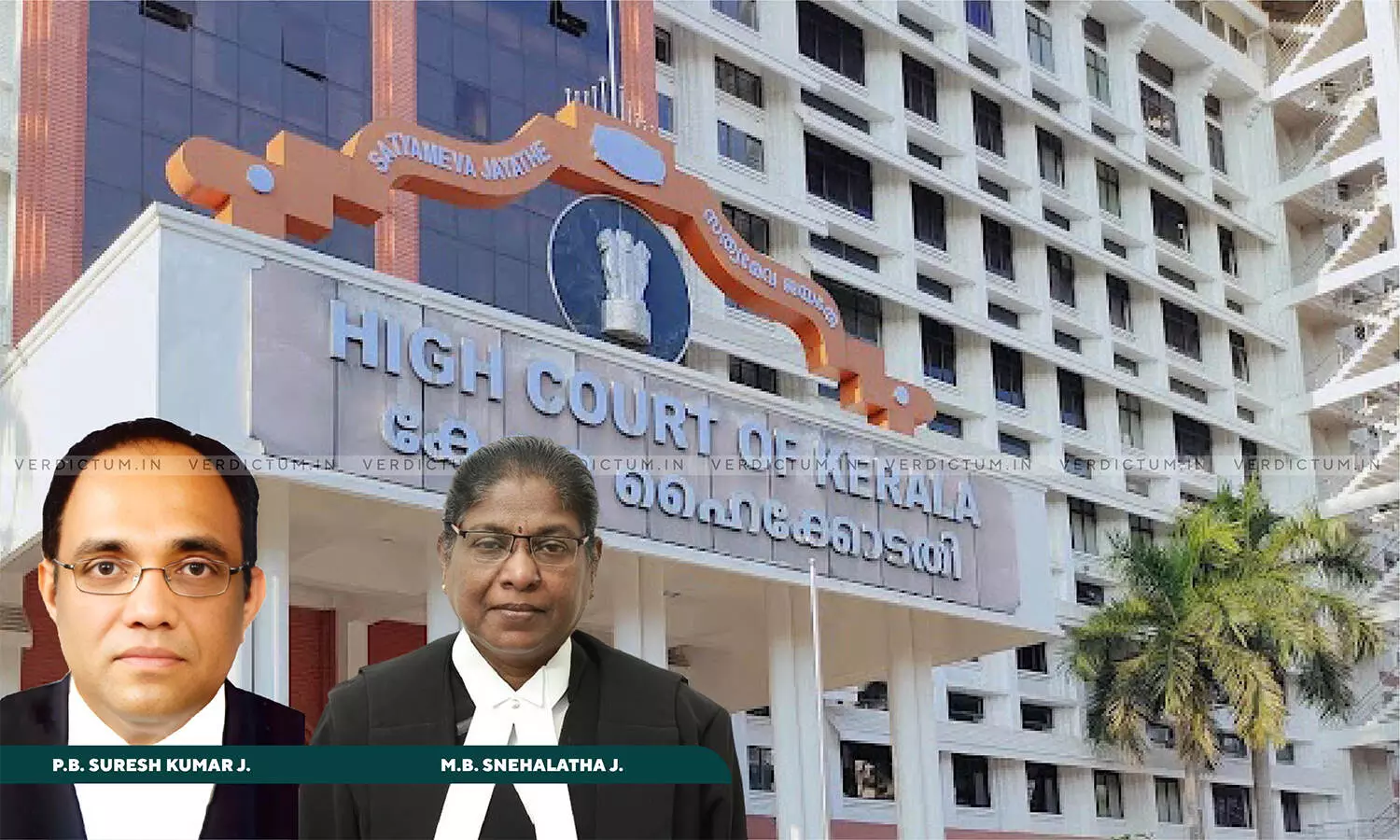
SC Judgment Which Held That Arrest Under UAPA Is Valid Only When Grounds Of Arrest Are In Writing Is Not Applicable Retrospectively: Kerala HC
 |
|The Kerala High Court has denied bail to a UAPA accused, while observing that the Judgment which held that for an arrest under UAPA to be valid the arrestee should be furnished with grounds of arrest in writing would not be applicable retrospectively.
In that context, the Bench of Justice PB Suresh Kumar and Justice MB Snehalatha observed that, "The appellant was arrested on 09.01.2024, much after the decision of the Apex Court in Pankaj Bansal. At the relevant time of arrest of the appellant, there was no requirement to serve the grounds of arrest, in writing, to the accused in a case under the UAPA. As noted, the stand taken by the respondent is that the appellant was communicated, orally, the grounds of arrest as done in all identical cases until then."
The petitioner, the 4th accused in a UAPA case, challenged the Special Court of Trial for NIA cases in Ernakulam's decision to deny his bail application. He was accused of harboring the 2nd accused. The Central Government had received information that ISIS/IS-KP, a proscribed terrorist organization, was secretly planning acts to undermine India's sovereignty and integrity by targeting prominent society members and religious places of other communities to commit terrorist acts and create societal disharmony.
He alleged that the the arrest was invalid due to the lack of written reasons for arrest. The prosecution stated that the reasons for the arrest were communicated to the petitioner orally.
The organization identified and radicalized gullible Muslim youths through encrypted communication channels to join ISIS/IS-KP and to raise funds for furthering the organization's activities. The Government tasked the NIA with investigating the matter.
The prosecution claimed that the 2nd accused was an active member of the Popular Front of India (PFI) and was involved in several criminal activities. He was associated with the India Fraternity Forum (IFF), PFI's overseas forum, while in Qatar in 2012. He conspired with the 1st accused to establish an ISIS module in Kerala and recruit youths for it. They established an ISIS module in Kerala and recruited several persons to further ISIS activities. Along with the 3rd and 4th accused, they committed several crimes to raise funds for their activities.
It was stated that they conducted reconnaissance of prominent Hindu temples and notable persons of other communities for targeting and looting. The 2nd accused propagated ISIS ideology through social media, secret communication platforms, and in person.
The petitioner was alleged to have harbored the 2nd accused despite widespread media coverage of his involvement in terrorist activities. He arranged a lodge room in his name for the 2nd accused at his expense and provided him with a mobile phone and two SIM cards taken in the names of his wife and a friend. Thus, he was accused of knowingly making arrangements for the 2nd accused's hideout.
The petitioner defended himself by claiming he had no knowledge that the 2nd accused was wanted for terrorist activities. He stated that he knew the 2nd accused beforehand and had monetary transactions with his relatives for a long time. The brother-in-law of the 2nd accused sent him to the petitioner for training in stock trading, and the arrangements were made for this purpose. The petitioner argued that the restrictions under Section 43D(5) do not apply to Constitutional Courts.
The Court observed that under Section 19 of the UAPA, harboring someone is an offense only if it is done with the knowledge that the person is a terrorist. The Court clarified that to be considered a 'terrorist' under this provision, it is not necessary for the individual's name to be listed in the 4th Schedule of the Act.
It was noted that simply because the activities of the 2nd accused were reported in newspapers, it cannot be conclusively inferred that the petitioner knew about these activities. This point needs to be proven during the trial. However, the Court expressed scepticism about the petitioner's claim that he made all arrangements to train the 2nd accused in stock trading. Given the petitioner's close acquaintance with the 2nd accused's family, the Court found it difficult to believe that the petitioner was unaware of the 2nd accused's activities.
The Court concluded that there are reasonable grounds to believe the accusations against the petitioner are true and held that the restrictions under Section 43D(5) of the UAPA would apply. According to this section, if a bail application is opposed and there are reasonable grounds to believe the accusations are prima facie true, the Special Court shall not grant bail.
Cause Title: Saheer E.P. v National Investigating Agency (Neutral Citation: 2024:KER:53759)
Click here to read/download the Judgment